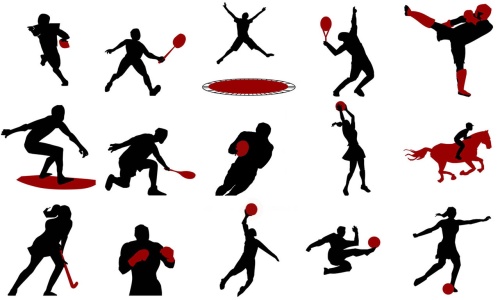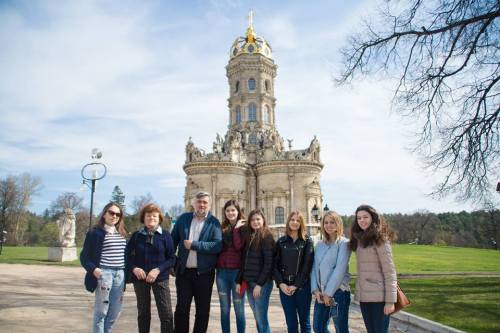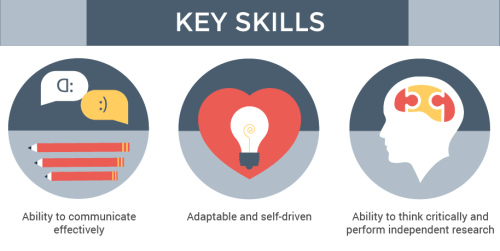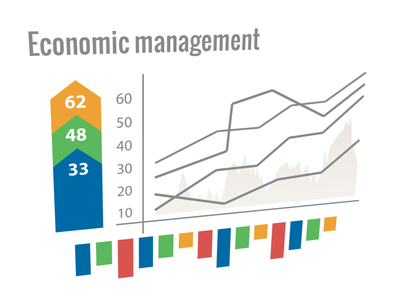Study Bachelor in Accounting and Finance in Russia

Study Bachelor in Accounting and Finance (in English) in Russia under the Learning in Russia™ program for international students!
Come study with Council for Foreign Education in Russia, the official International Education partner of leading Russian State Universities and Russian National Research State Universities.
Degree/Field of study: Bachelor in Accounting and Finance (in English)
Duration: 4 years
Language: English
Deadline: July 25. If students miss the deadline, they are advised to take a one year Russian Preparatory course which will give them an opportunity to be independent, work in Russia as well as enjoy the social life in Russia freely. After one year they will be admitted in the 4-year English medium Bachelor program automatically.
Partner University: London School of Economics and Political Science (University of London)
This degree is for you if you:
- are professionally qualified in the accountancy field and would now like to take a degree
- wish to go on to take professional accountancy qualifications
- have not yet decided which profession to pursue but would like a thorough grounding in accounting and finance.
Program Structure
The degree consists of 12 courses when taken through the Standard Route and 9 courses through the Graduate Entry Route.
Prestige and career progression
The London School of Economics and Political Science (LSE) provides academic direction for this programme. LSE is regarded as an international centre of academic excellence and innovation in the social sciences. This degree will prepare you for a career in areas of professional accountancy, investment banking, investment analysis and management, management consultancy and financial management, as well as to more advanced academic study.
Professional accreditation
Graduates of the BSc Accounting and Finance degree who wish to continue their studies towards professional accreditation in the financial or accounting professions can take advantage of a ‘fast track’ agreement with five professional bodies:
Subject to passing the required combination of courses on your degree, you will be exempt from certain modules required on the route towards professional accreditation. The prospectus, available to download in the top right-hand column, contains further information about accreditation.
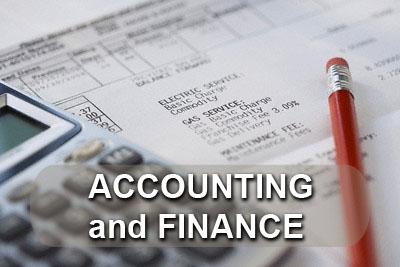
Calculator and pencil on energy bill — Image by © Kate Kunz/Corbis
Structure and syllabus
Standard Route – 100 courses
-
- Introduction to economics
- Mathematics 1 (half course) and
- Statistics 1 (half course)
- Principles of banking and finance
- Principles of accounting
One course (or two half courses) from Selection groups F(i), F(ii) or F(iii)
Selection group F(i) [Level 100 courses]
Introduction to international development
Introduction to economics
Human geography
Introduction to international relations
World history since 1945
Mathematics 1 (half course)
Mathematics 2
Algebra
Calculus
Introduction to modern political thought
Introduction to political science
Contemporary sociology in a global age
Reading social science
Statistics 1 (half course)
Statistics 2
Selection group F(ii) [Level 100 courses]
Principles of accounting
Principles of banking and finance
Introduction to information systems
Introduction to computer systems architecture and programming
Business and management in a global context
Selection group F(iii) [Level 100 courses]
Criminal law
Public law
Common law reasoning and institutions
Contract law
Standard Route – 200 and 300 courses
-
- Managerial economics or
- Microeconomics
- Financial management or
- Corporate finance
- Financial reporting
- Auditing and assurance
- Management accounting
- One course from Selection groups B, E or M
- One 200 or 300 course (or two half courses) from any Selection group
From this selection group you can choose between either Financial management or Corporate finance.
Financial management
Corporate finance
Financial reporting
Auditing and assurance
Management accounting
Valuation and securities analysis
Quantitative finance
Selection group B [Level 200 and 300 courses]
Financial reporting
Auditing and assurance
Valuation and securities analysis
Financial intermediation
Corporate finance
Investment management
Quantitative finance
Selection group D [Level 200 and 300 courses]
Economic policy analysis in international development
Economics of development
Complex emergencies and humanitarian responses
Development management
Global environmental problems and politics
Geographies of development
Social policy
Population and society
Selection group E [Level 200 and 300 courses]
Economics of development
Elements of econometrics
Macroeconomics
Microeconomics
Economic history in the 20th century
Economics of labour
International economics
Public economics
Industrial economics
Monetary economics
Mathematical economics
Corporate finance
Economic geography
International political economy
Managerial economics
Further mathematics for economists
Selection group F(i) [Level 100 courses]
Introduction to international development
Introduction to economics
Human geography
Introduction to international relations
World history since 1945
Mathematics 1 (half course)
Mathematics 2
Algebra
Calculus
Introduction to modern political thought
Introduction to political science
Contemporary sociology in a global age
Reading social science
Statistics 1 (half course)
Statistics 2
Selection group F(ii) [Level 100 courses]
Principles of accounting
Principles of banking and finance
Introduction to information systems
Introduction to computer systems architecture and programming
Business and management in a global context
Selection group F(iii) [Level 100 courses]
Criminal law
Public law
Common law reasoning and institutions
Contract law
Selection group G [Level 200 and 300 courses]
Complex emergencies and humanitarian responses
Development management
Geographies of development
Economic geography
Population and society
Selection group IR [Level 200 and 300 courses]
Complex emergencies and humanitarian responses
Development management
Global environmental problems and politics
Nationalism and international relations
International organizations
Foreign policy analysis
International political economy
International political theory
Security in international relations
Selection group IS [Level 200 and 300 courses]
Information systems development and management
Information systems and organizations
Information and communication technologies: principles and perspectives
Management and innovation of e-business
Research project in information systems
Software engineering: theory and application
Selection group L [Level 200 and 300 courses]
Tort law
Law of trusts
Property law
Civil and criminal procedure
Evidence
Administrative law
History of English law
Public international law
Conflict of laws
Succession
Commercial law
Labour law
Family law
EU law
Criminology
Intellectual property
Introduction to Islamic law
International protection of human rights
Selection group M [Level 200 and 300 courses]
From this selection group you can choose between either Financial management or Corporate finance.
Financial management
Corporate finance
Management accounting
Development management
Information systems and organizations
Management and innovation of e-business
Elements of social and applied psychology
The law of business organizations
Managerial economics
Management science methods
Human resource management
Core management concepts
Strategy
Organization theory: an interdisciplinary approach
Principles of marketing
Management mathematics
Selection group N [Level 200 and 300 courses]
Abstract mathematics
Advanced statistics: distribution theory (half course)
Advanced statistics: statistical inference (half course)
Advanced mathematical analysis (half course)
Discrete mathematics and algebra
Further calculus (half course)
Further linear algebra (half course)
Game theory (half course)
Optimization theory (half course)
Mathematics of finance and valuation (half course)
Selection group P [Level 200 and 300 courses]
Complex emergencies and humanitarian responses
Development management
Global environmental problems and politics
Comparative politics
Democracy and democratization
Politics and policies of the European Union
Political analysis and public choice
Selection group S [Level 200 and 300 courses]
Criminology
Elements of social and applied psychology
Organization theory: an interdisciplinary approach
Social research methods
Sociological theory and analysis
Social policy
Historical sociology
Population and society

Principles of banking and finance
Syllabus
Part 1 Financial Systems
Part 2 Financial intermediaries
Part 3 Principles of finance
Learning outcomes
At the end of the course and having completed the essential reading and activities students should:
- discuss why financial systems exist, and how they are structured
- explain why the relative importance of financial intermediaries and financial markets is different around the world, and how bank-based systems differ from market-based systems
- understand why financial intermediaries exist, and discuss the role of transaction costs and information asymmetry theories in providing an economic justification
- explain why banks need regulation, and illustrate the key reasons for and against the regulation of banking systems
- discuss the main types of risks faced by banks, and use the main techniques employed by
banks to manage their risks
- explain how to value real assets and financial assets, and use the key capital budgeting techniques (Net Present Value and Internal Rate or Return)
- explain how to value financial assets (bonds and stocks)
- understand how risk affects the return of a risky asset, and hence how risk affects the value of the asset in equilibrium under the fundamental asset pricing paradigms (Capital Asset Pricing Model and Asset Pricing Theory)
- discuss whether stock prices reflect all available information, and evaluate the empirical evidence on informational efficiency in financial markets
Principles of accounting
Syllabus
Section 1 Financial accounting
Section 2 Management accounting and financial management
Learning outcomes
At the end of this course and having completed the essential reading and activities students should be able to:
- distinguish between different uses of accounting information and relate these uses to the needs of different groups of users
- explain the limitations of such statements and their analysis
- categorize cost behavior, and prepare and contrast inventory valuations under different costing methods
- describe the budgeting process and discuss the use of budgets in planning and control
- explain, discuss and apply relevant techniques to aid internal users in decision-making.
Financial management
Syllabus
Chapter 1: Financial management function and environment
Chapter 2: Investment appraisals 1
Chapter 3: Investment appraisals 2
Chapter 4: Investment appraisals 3
Chapter 5: Risk and return
Chapter 6: Portfolio Theory and Capital Assets Pricing Model
Chapter 7: Practical consideration of the Capital Assets Pricing Model and Alternative Asset Pricing Model
Chapter 8: Capital market efficiency
Chapter 9: Sources of finance – Equity
Chapter 10: Sources of finance – Debt
Chapter 11: Capital structure 1
Chapter 12: Capital structure 2
Chapter 13: Dividend policy
Chapter 14: Cost of capital and capital investments
Chapter 15: Valuation of business
Chapter 16: Mergers
Chapter 17: Financial planning
Chapter 18: Working capital management
Chapter 19: Risk management – concepts and instruments for risk hedging
Chapter 20: Risk management – applications
Learning outcomes
At the end of this course and having completed the essential reading and activities students should be able to:
- describe how different financial markets function
- estimate the value of different financial instruments (including stocks and bonds)
- make capital budgeting decisions under both certainty and uncertainty
- apply the capital assets pricing model in practical scenarios
- discuss the capital structure theory and dividend policy of a firm
- estimate the value of derivatives and advise management how to use derivatives in risk management and capital budgeting
- describe and assess how companies manage working capital and short-term financing
- discuss the main motives and implications of mergers and acquisitions.
- integrate subject matter studied on related modules and to demonstrate the multi-disciplinary aspect of practical financial management problems
- use academic theory and research to question established financial theories.
- be more proficient in researching materials on the internet and Online Library
- be able to use excel for statistical analysis
Corporate finance
Syllabus
Part 1 Project evaluation
Part 2 Risk and return
Part 3 Derivative assets
Part 4 Efficient markets
Part 5 Capital structure
Part 6 Dividend theory
Part 7 Corporate governance
Part 8 Mergers and acquisitions
Learning outcomes
At the end of this course and having completed the essential reading and activities students should be able to:
- explain how to value projects, and use the keycapital budgeting techniques (NPV and IRR)
- understand the mathematics of portfolios and how risk affects the value of the asset in equilibrium under the fundaments asset pricing paradigms (CAPM and APT)
- know how to use recent extensions of the CAPM, such as the Fama and French three factor model, to calculate expected returns on risky securities
- explain the characteristics of derivative assets (forwards, futures and options), and how to use the main pricing techniques (binomial methods in derivativespricing and the Black–Scholes analysis)
- discuss the theoretical framework of informational efficiency in financial markets and evaluate the related empirical evidence
- understand the trade-off firms face between tax advantages of debt and various costs of debt
- understand and explain the capital structure theory, and how information asymmetries affect it
- understand and explain the relevance, facts and role of the dividend policy
- understand how corporate governance can contribute to firm value
- discuss why merger and acquisition activities exist, and calculate the related gains and losses
Financial reporting
Syllabus
The rationale for financial reporting. Arguments for and against regulation of financial reporting. Methods or regulation, including standardisation of accounting practices. The nature and purposes of a conceptual framework for financial reporting: the objectives of financial reporting; the qualitative characteristics of
accounting information; the definitions of an asset and a liability; recognition and measurement in financial statements; international framework. Narrative reporting and issues of corporate social responsibility.
Economic and accounting concepts of income, capital and value with particular reference to Hicks’ income concepts
Strengths and weaknesses of historical cost accounting. Bases of asset valuation. Capital maintenance concepts and various associated techniques
Current value accounting systems, Current purchasing power accounting, Replacement cost accounting
; in addition to Entry (Historical cost) and Exit value accounting
Accounting for investments and groups of companies. The merger and acquisition methods. Associated companies and joint ventures. Accounting for foreign currency transactions, foreign subsidiaries and branches: the temporal and closing rate/net investment methods of foreign currency translation
Accounting for tangible and intangible assets: fixed assets and depreciation; stocks and long
term contracts; research and development; goodwill. Accounting for leases. Accounting for liabilities. Accounting for taxation, including deferred taxation.
Analysis and interpretation of corporate financial reports; introduction to international differences in financial reporting.
Learning outcomes
At the end of this course and having completed the essential reading and activities students should be able to:
- explain and apply a number of theoretical approaches to financial accounting
- record and analyse data
- prepare financial statements under alternative accounting conventions
- describe a number of regulatory issues relating to financial accounting
- critically evaluate theories and practices of, and other matters relating to, financial accounting
Auditing and assurance
Syllabus
Part 1 Reasons for auditing
Part 2 Principles and postulates of auditing
Part 3 The legal and professional environment
Part 4 The duties of auditors
Part 5 Audit planning
Part 6 Conduct of audits and assurance services
Part 7 Computer-based systems
Part 8 The report of the auditors or assurance service providers
Part 9 Current developments in auditing and assurance services
Learning outcomes
At the end of this course and having completed the essential reading and activities students should be able to:
- explain why external audits and other types of assurance services are conducted
- discuss the duties of auditors and other assurance providers and how these have changed over time
- explain the meaning of concepts that are fundamental to auditing and assurance services, such as ‘independence’, ‘evidence’, ‘risk’, ‘materiality’
- describe, in general terms, the processes involved in auditing and other assurance services
- distinguish between compliance and substantive testing and describe various audit tests
- discuss the form, content and importance of the reports provided at the end of the audit or assurance service
- discuss the issue of legal liability arising from audits and other assurance services
- discuss current developments in auditing and assurance services
Management accounting
Syllabus
Chapters 1 and 2 give particular emphasis to the role played by management accounting in the support of strategic decision making. Chapter 3 adds the elements of uncertainty and capacity constraint.
Chapters 4 to 11 address various costing techniques, showing their underlying logic and demonstrating their most appropriate use. These techniques enable different analyses which are aimed at tracing
the consumption of resources back to units of products or services. The choice between them will be seen in light of the different aims that the decision makers are hoping to achieve.
Chapter 12 explores the link between measurement and management, making the information created by activity -based costing (ABC) an essential tool for strategic management of an organisation. These decisions imply wider and longer commitments for a company,as explained in Chapter 13.
Chapters 14 to 19 close the loop opened at the beginning of the study guide with regards to the role of management accounting in strategic management.
Chapters 14 to 16 will demonstrate how the concepts and techniques presented in the previous chapters can be used for advanced management practices,such as budgeting and controlling in a strategic context. Chapters 17 and 18 will explore how management accounting can enable performance evaluation aimed at supporting daily and strategic decision
making. Chapter 19 brings it all together by emphasising the use of comprehensive frameworks, such as the balanced scorecard,in strategic decision making.
The study guide closes with Chapter 20, where scenarios and questions are proposed to address all concepts in a systematic way.
Learning outcomes
At the end of this course and having completed the essential reading and activities students should be able to:
- critically evaluate the uses of Managerial Accounting information for strategic decision making in various business contexts
- select, devise and apply different types of cost allocation and explain their different roles for supporting strategic managerial decisions
- design and prepare budgets and explain their use in strategic planning and control
- design and use variances to support feedback analysis and strategic control
- discuss various approaches to performance measurement and control in various types of organisations, and devise and evaluate simple indicators of performance
- discuss the changing role of Management Accounting.
For applying to study Bachelor in Accounting and Finance in one of the leading National Research Russian State University go HERE and learn the step-by-step admission process at the end of the page. Then you may fill in all fields in our INFORMATION REQUEST Form and forward it to one of our e-mails: admissions@cferussia.ru or learninginrussia@gmail.com

